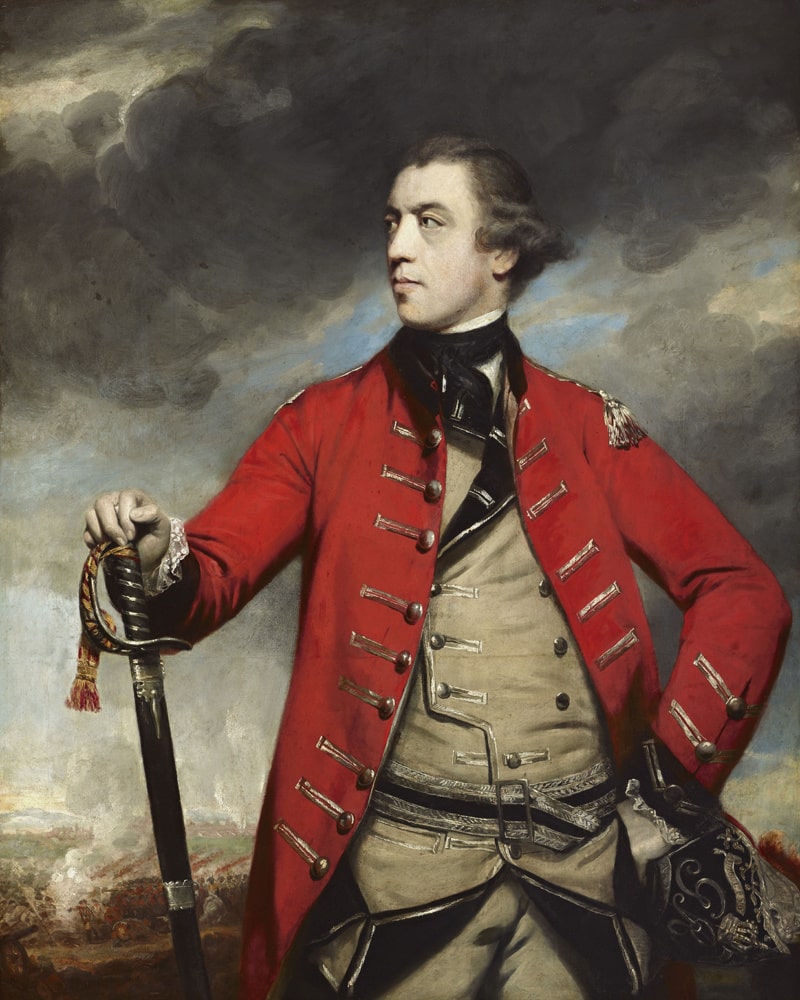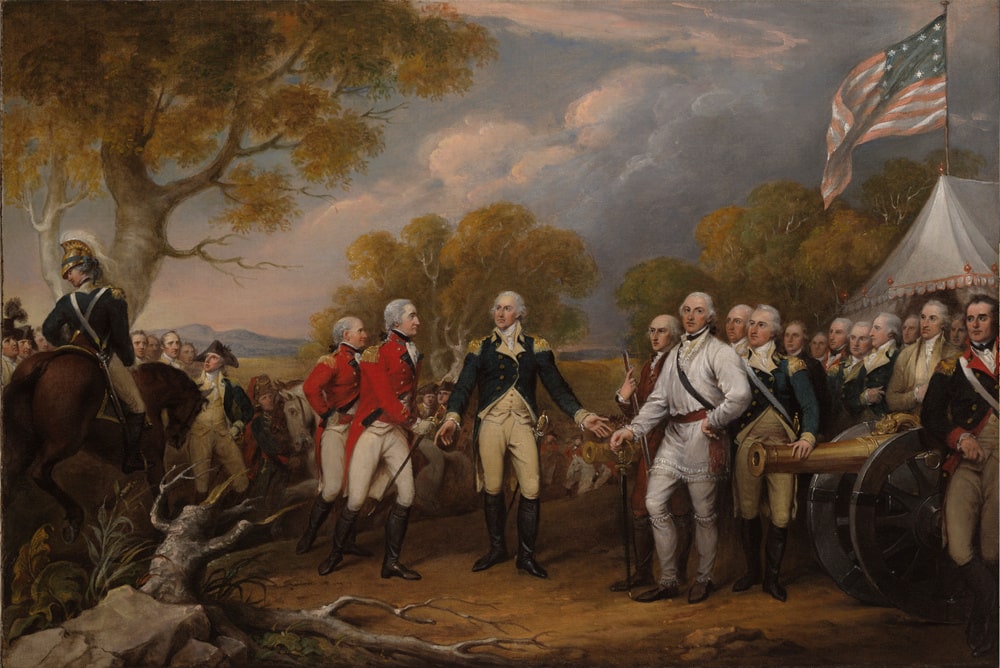Contents

Contents
Quick facts
- Born: 24 February 1722 in Sutton, Bedfordshire, England.
- John Burgoyne was a British army officer, politician, and playwright who is best known for his role in the American Revolutionary War, particularly his command of British forces during the Saratoga campaign of 1777.
- His surrender to American forces at the Battle of Saratoga marked a turning point in the war, as it significantly boosted American morale and helped secure French support for the American cause.
- Burgoyne’s strategy in the Saratoga campaign, known for its ambition to divide the rebellious colonies along the Hudson River, ultimately failed due to logistical challenges and strong American resistance.
- Before his involvement in the American Revolution, Burgoyne had a distinguished military career in Europe, including service in the Seven Years’ War.
- Aside from his military career, he was also known for his work as a playwright, with several of his plays being well-received in London.
- Died: 4 August 1792 in London, England.
Biography
John Burgoyne — British general, politician, and dramatist — was born in 1722. He entered the army at an early age and was soon given the nickname Gentleman Johnny
for his stylish uniforms and extravagant spending. In 1743 he made a runaway marriage with a daughter of the Earl of Derby, but soon had to sell his commission to meet his debts — after which he lived abroad for seven years. Through Lord Derby’s influence Burgoyne was reinstated at the outbreak of the Seven Years’ War (1754—63; known in the U.S. as the French and Indian War).
In 1758 he became captain and lieutenant colonel in the foot guards. In 1758—59 he participated in expeditions made against the French coast; in the latter year he was instrumental in introducing light cavalry into the British army. The two regiments then formed were commanded by George Eliott (afterwards 1st Baron Heathfield) and Burgoyne.
A Member of Parliament from 1761 to 1792, Burgoyne first sat in the House of Commons for Midhurst. In the following year he served as brigadier-general in Portugal, winning distinction by his capture of Valencia d’Alcantara and of Villa Velha. In 1768 he became a Member of Parliament for Preston, and for the next few years he occupied himself chiefly with his parliamentary duties, in which he was remarkable for his general outspokenness. At the same time, in addition to gambling recklessly, he devoted much attention to art and drama (his first play, The Maid of the Oaks, was produced by David Garrick in 1775).
In the army Burgoyne had by this time become a major general, and at the outbreak of the American Revolution he was appointed to a command. In 1777 he was at the head of the British reinforcements designed to invade the colonies from Canada. In this disastrous expedition he gained possession of Ticonderoga (for which he was made a lieutenant-general) and Fort Edward. Pushing on, however, he became detached from his communications with Canada, and was hemmed in by a superior force headed by American General Horatio Gates at Saratoga. On 17 October, some 3,500 troops laid down their arms.

Burgoyne’s failure became the colonists’ greatest success yet gained, and it proved the turning-point in the war.
The indignation in England against Burgoyne was great, but perhaps unjust. He returned to England at once to defend his conduct and demanded, but never obtained, a trial. He was deprived of his regiment and a governorship. However, when his political friends came into office in 1782, he was restored to his rank, given a colonelcy, and made commander-in-chief in Ireland and a privy councilor.
After the fall of the Marquess of Rockingham’s government a few months later, Burgoyne withdrew more and more into private life. In his later years he was principally occupied in literary and dramatic work. His comedy The Heiress (1786) ran through ten editions within a year and was translated into several foreign languages.
He died suddenly on 4 August 1792.
Though Burgoyne did not have children with his wife (who had died in June 1776 during his absence in Canada), he was survived by several natural children from Susan Caulfield, an opera singer — one of whom became Field Marshal Sir John Fox Burgoyne, who fought the Americans in the War of 1812.

